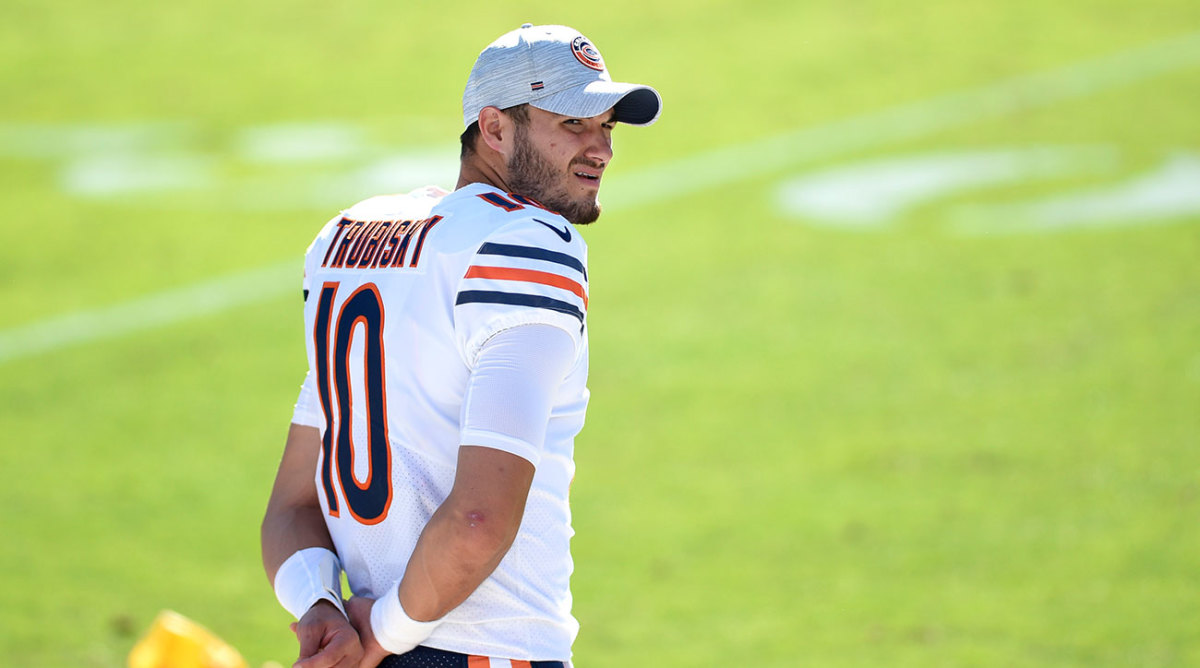The NFL's Expanded Playoff Format Looks to Have Fallen Flat in its First Year
One had to wonder, when watching the tail end of a dying Bears comeback attempt against the Packers (in a game they never really felt in to begin with), if maybe our initial excitement about NFL playoff expansion was a tad premature.
That Chicago team, a kind of one-legged pirate hobbling along this season amassing wins against its weakest opponents and treading water to survive (the Bears have one win this season against an opponent with a winning record), is officially your NFC seven seed, thanks to a loss by the Cardinals on Sunday. They’ll face a New Orleans team capable of putting teams through the shredder with regularity while Taysom Hill takes significant snaps under center.

My initial take feels wrong for two reasons, the first of which being that the Bills and Saints both deserve first-round byes. The optics of a 13-win team and an excellent 12-win team that weathered this chaotic steeplechase of a season having to limp into their home stadiums and entertain speed bump opponents en route to the second round feels a little ridiculous. It’s equally ridiculous that a team like the Bears, who are upset enough about the current state of things to reportedly be entertaining a new head coach and general manager, will somehow be a factor on the opening weekend of the postseason. It’s difficult to tell if this specific complaint feels unique to this year, when every team played through the COVID-19 pandemic and the idea of a “break” feels like something of an unattainable out-of-body dream scenario. So many teams worked with truncated bye weeks or maybe the absence of a bye week altogether, and the prospect of valuable time and rest is at a premium.
Admittedly, my love of playoff expansion came from the thought that there would be a glut of good NFL teams, or perhaps an NFL team that was unfairly ravaged by injury, that got a second lease on life during the latter half of the season. There would also be a more intense competition for the lone bye, making it more likely to see stars throughout the entirety of the season.
And, over in the AFC, that is somewhat true. A 10-win team will still miss the playoffs despite the expanded field (the Dolphins), though the Steelers opted to rest their quarterback in the season finale instead of pressing for the now meaningless No. 2 seed, robbing us of an (even more) dramatic showdown with the Browns to end the season.
It seems each year, given the league’s scattered balance of power, that we will ask ourselves the same fundamental question over and over again: Is it better to leave out one really good team from the playoffs, or to admit one undeserving team into the postseason? Maybe, at some point, the math will bear out the latter; there is a fine enough chance that the Colts could make a run through the AFC playoffs and show us the reason why an expanded field has its merits. However, the idea that any middling team that does not win their division can get into the postseason at all (like the Bears, or the Cardinals, had they not lost to the John Wolford-led Rams on Sunday) feels less in the spirit of football’s mission statement doesn’t it?
While we are far, far adrift from what the game’s founding fathers could have wanted in terms of the game’s soul in 2020, it wouldn’t be difficult to imagine their preference for a world where the better teams are rewarded for their expertise and the bad teams are lopped off. If the case of a 10-win Colts team missing the playoffs were to arise back then, they might have told them to rub some dirt on it and try harder next year.
Only time will tell what the right answer is. As of right now, with the feeling of dread creeping in at the prospect of watching Bears-Saints next weekend, an early preference for the way things were has developed.
• WILD-CARD WEEKEND: Seedings, matchups and TV times
